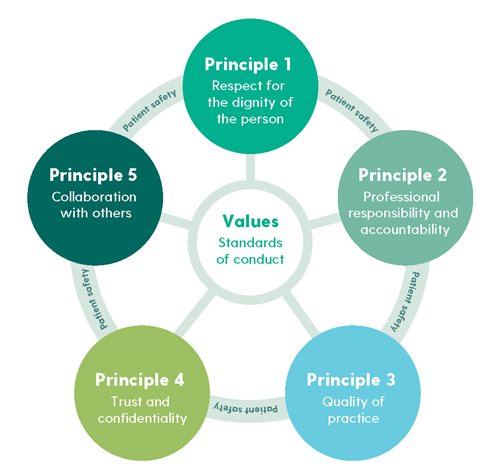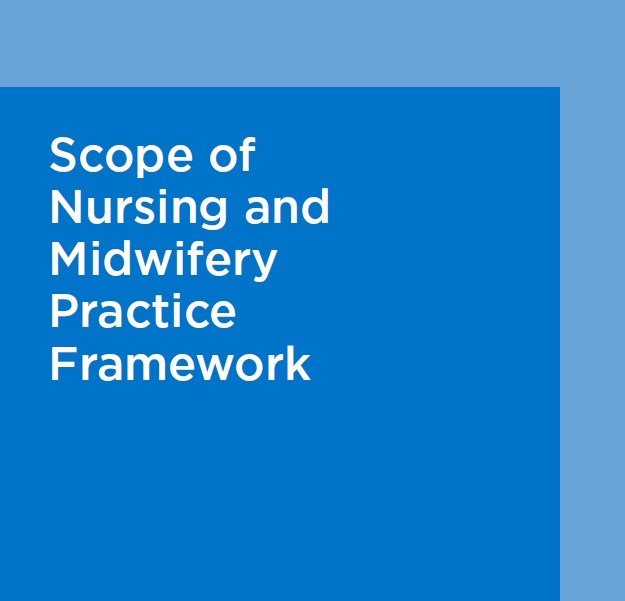Scope of practice framework: principles for determining scope

Professional decision-making is guided by the Code of Professional Conduct and Ethics for Registered Nurses and Registered Midwives. The five principles are represented here.
The following principles are the basis for making decisions with regard to the scope of practice for an individual nurse or midwife:
- It is recognised that the authority for nursing and midwifery practice is mandated by society. Thus, the primary motivation for practice must be for the overall benefit and needs of patients by respecting their dignity and rights, and by promoting and maintaining patient safety and providing quality health care.
- Fundamental to nursing and midwifery practice is the relationship with the patient, which facilitates patient autonomy, informed choice and evidence-based decision-making.
- In determining their scope of practice, the nurse and midwife must make a judgement as to whether or not they are competent to carry out the role or activity.
- Each nurse and midwife is responsible for their level of competency, and must take measures to develop and maintain the competence necessary for professional practice. The nurse or midwife must acknowledge any shortfall of competence.
- Expansion of practice must be made in the context of the definitions of nursing and midwifery; and the values that underpin nursing and midwifery practice as outlined in the Code of Professional Conduct and Ethics for Registered Nurses and Registered Midwives.
- Expansion of practice must only be made with due consideration to legislation, international, national or local evidence-based clinical practice guidelines and available resources.
- The individual nurse or midwife is responsible and accountable for their practice. Expansion of practice, therefore, involves greater accountability and added responsibility and should ensure that the patient is provided with respectful, safe, quality care with minimum risk of harm.
- The nurse and midwife should collaborate, consult and communicate with other health and social care professionals, health providers and other individuals and agencies regarding the appropriate nursing and midwifery assessment, diagnosis, planning, intervention, and evaluation of patient care.
- The nurse or midwife who is delegating a particular role or activity (the delegator) is accountable for the decision to delegate. This means that the delegator is accountable for ensuring that the delegated role or activity is appropriate and that resources and supervision, where required, are available. They are also accountable for appropriate assessment, planning, implementation, monitoring and evaluation of the delegated role or activity.
- The nurse or midwife (or other person) receiving a delegated role or activity must acknowledge any limitation in competence or other issue that may impact on their ability to carry out the delegated role or activity. When accepting a delegated role or activity, they are responsible for carrying out the delegated role or activity and are accountable for the appropriate performance of that role or activity.

Scope of Nursing and Midwifery Practice Framework
(PDF, 0.76 MB)
Download